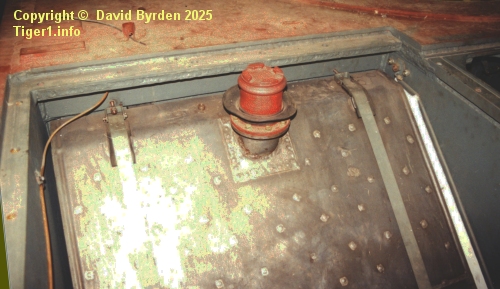
The Tiger had four fuel tanks. Two of them were low down in the engine room, and two were up in the rear sponsons, in isolated compartments with the radiators and fans.
The photo shows Tiger "131" during restoration [1] . The hull has been sandblasted and primed; this internal compartment has been painted. We are seeing the left-hand upper fuel tank. It is held in place by two adjustable straps. There is a white strip visible on the right of the photo; it is part of a protective panel. The fuel tank has a wedge shape because the air inlet duct for the radiator sits immediately above it.
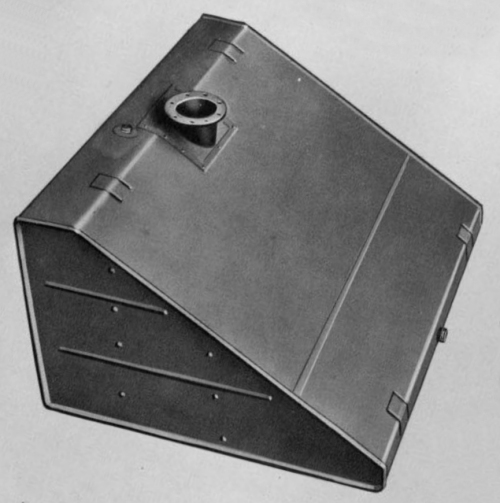
This image, extracted from a manual, shows such a fuel tank. There are built-in niches for the straps.
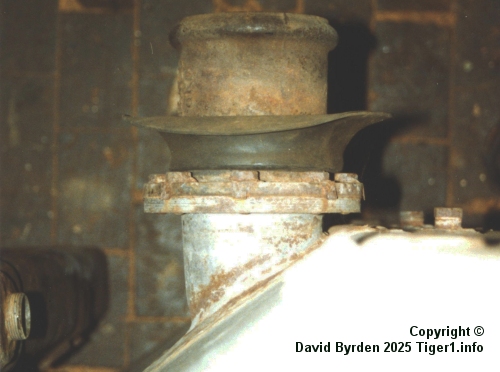
This is the inlet pipe of a fuel tank. There is a corresponding filler cap in the armoured grille that will be above it. The design of this inlet was changed at one time; we are seeing the first version, found in Tiger "131". Note the two small connectors on the top edge of the tank; another is visible in the corner of the photo.
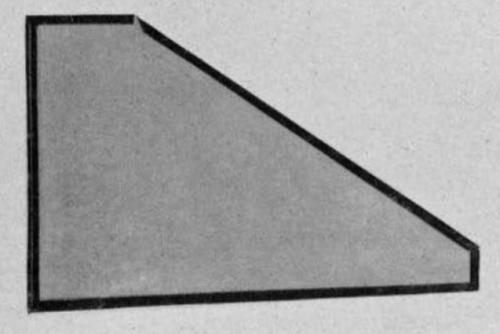
One protective panel was provided per fuel tank. They seem to be made of a white material, but I don't know what it is or what purpose they serve. They weigh 3.5kg [2] .
Colour and appearance
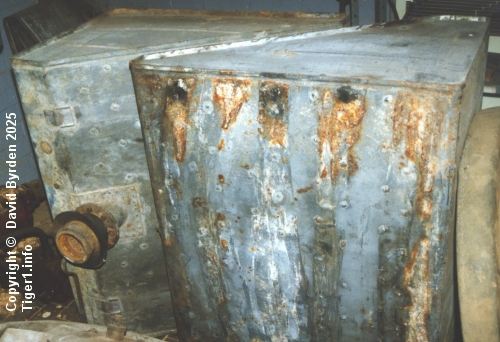
These are the upper fuel tanks of Tiger "131", stored during restoration. They have never been cleaned. They are bare metal, and presumably do not need paint because they are non-ferrous. We can see the underside of one tank; it is marked by the five soft strips, 8mm thick, that were placed under it [2] .
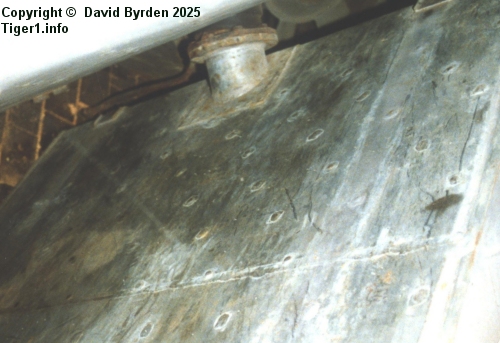
Looking closely at the slanted surface of a fuel tank, we see a grid pattern of what appear to be rivet marks.
Dimensions
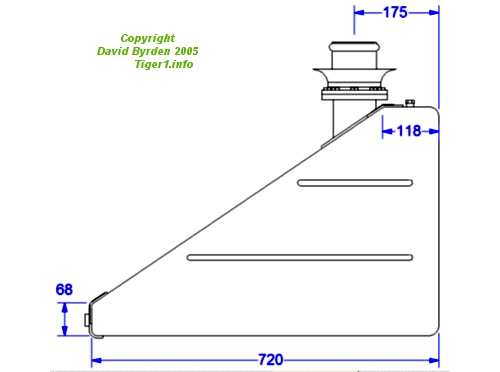
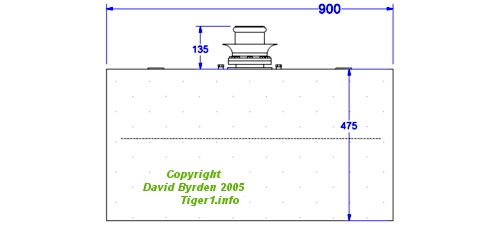
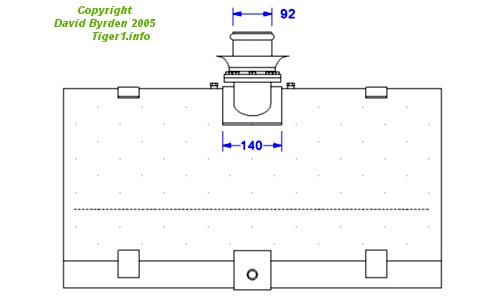
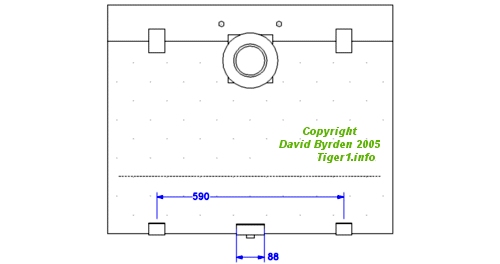
I obtained these dimensions by measuring a fuel tank.
[1] Survey of Tiger 250122, at Bovington museum, by David Byrden
[2] Kraftfahrgerät teil 3, Fahrgestell und Turm Panzerkampfwagen "Tiger", heft 60